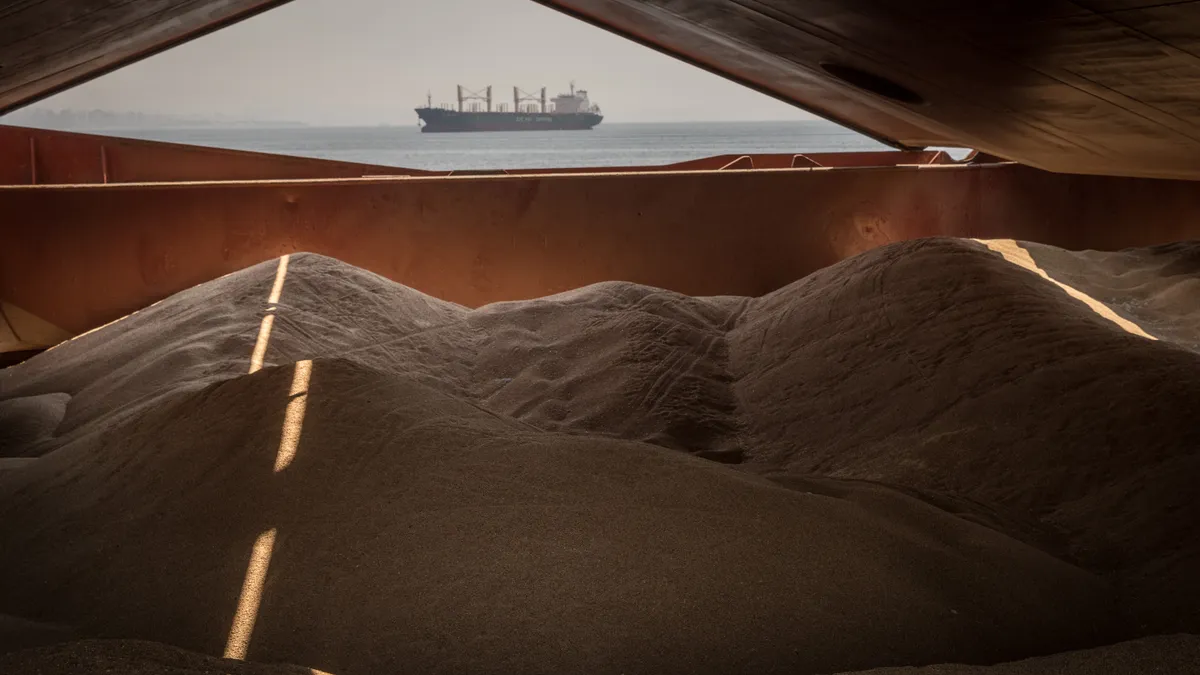Dive Brief:
- Russia said Monday it will pull out of an agreement that allowed Ukraine to export grain despite a military blockade, a move that threatens to upend global food prices.
- The country is halting participation in the Black Sea Grain Initiative until certain demands to improve its own grain and fertilizer exports are met. In a statement, Russia's foreign minister pushed back against Western sanctions and said the deal unfairly favored Ukraine.
- The agreement, reached last July amid turmoil in global food prices and supply, had been extended multiple times. The United Nations said the deal allowed for the export of 32 million metric tons of commodities, and is essential to addressing food security in Africa, the Middle East and Asia.
Dive Insight:
The expiration of the Black Sea Grain Initiative could once again push up food prices and limit supply, similar to what occurred when Russia first invaded Ukraine last February. With both countries now entering their harvest seasons, the U.N. has scrambled to reach an agreement to keep trade flows predictable.
“Hundreds of millions of people face hunger and consumers are confronting a global cost-of-living crisis,” U.N. Secretary-General António Guterres said Monday following Russia’s announcement. “They will pay the price.”
Markets have been bracing for the end of the grain agreement as exports from Ukraine have dwindled over the past few months. Black Sea sunflower oil prices rose on July 7, with sellers in Ukraine "reluctant to sell amid tighter supply conditions," according to S&P Global. Wheat prices rose on Monday shortly after Russia officially announced its exit from the deal, Guterres said Monday.
The impact of the deal's expiration may not be as dramatic as what occurred at the beginning of the war. Countries including the U.S. and Brazil are expected to have greater supplies of commodities such as corn, according to the U.S. Department of Agriculture, which could offset losses from Ukraine.
Nonetheless, Russia’s exit from the grain deal “will strike a blow to people in need everywhere,” Guterres said on Monday. The U.N. will continue to work “to facilitate the unimpeded access to global markets for food products and fertilizers from both Ukraine and the Russian Federation,” he added.
Russia's chief demands include reinstatement of its agricultural bank to the SWIFT international payment system, which facilitates payments for imports and exports between countries. Last week, Guterres sent Russia a letter outlining proposals to "remove hurdles affecting financial transactions" through the agricultural bank.
President Vladimir Putin, however, said Russia won't rejoin the deal unless countries follow through on their pledges.
"We will extend the deal exactly at the moment when the promises made to us are fulfilled," he told reporters last week.











